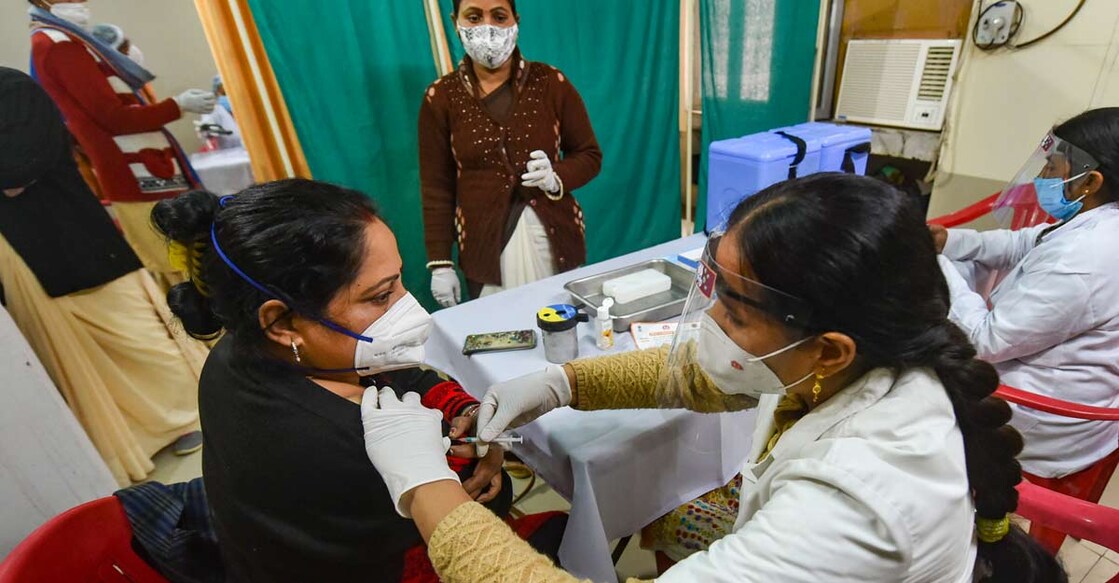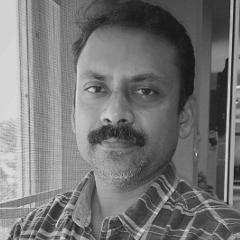Aversion to vaccination a challenge to COVID immunisation, says health expert

Mail This Article
Even though the new year dawned with the promise of a cure for the pandemic, the world is not yet out of the woods as a tangible solution is not there on the table. Drug Controller General of India (DGCI) has already approved the use of Covishield, the Indian version of the Oxford-Astrazeneca vaccine, and Covaxin, the vaccine developed by Bharat Biotech. There are some more vaccine candidates in the pipeline to be authorised for emergency use. But it remains to be seen how effective they are in containing the infection.
Dr. Sreejith K, Associate Professor, Department of Medicine, Kozhikode Medical College, said vaccination drive against COVID-19 would face a lot of challenges in India.
"Many people are averse to already-established vaccination or immunisation programmes in our country due to various reasons. They could pose a serious threat to vaccinating the whole country against COVID-19,” he said.
Another big challenge is the size of the population. “It would be a humongous task for the government to reach out to each individual,” he said.
“People’s eagerness to get the jab may also cause problems. It can cause overcrowding at centres, although registration for vaccination is carried out through CoWIN application,” he said.
Concerns about efficacy
There are concerns about the efficacy of the vaccine against the mutant viruses as well. The mutation has been occurring very early, said Dr. Sreejith.
“SARS CoV-2 must have undergone several mutations than we are hearing right now. The D614G, the fist mutation which happened during the early stages of the novel Coronavirus infection in China, had increased infectivity than its parent version and had led to its spread worldwide. The new coronavirus variant in the UK, designated as N501Y mutation, may not be a major one to be a game-changer. But it may have a 70 percent higher infectivity and virulence on animal models and therefore might have the potential to spread faster,” he said.
“Since that is a minor mutation of the spike protein, the current vaccines are effective against this virus variant,” he said. “However, the details can be derived only after collecting the data when the actual vaccination programme begins.”
Another challenge could be the shortage of vaccine for some countries. “The richer countries may buy and stock vaccines in large quantities in advance while the poorer countries may thus face a shortage of vaccine doses. This may also lead to a global controversy,” Sreejith said.
Maintaining the cold chain for Pfizer and Moderna vaccines would be highly expensive as they require storage facilities maintaining a temperature of minus 70 degree Celsius. But they claim 95% efficacy. Meanwhile, Covaxin and Covishield are cheaper as they can be stored in a common refrigerator. But, it is better to receive whichever vaccine is approved and available.
He said the dry run was a mock drill of the planned vaccination drive to assess the feasibility of the immunisation programme, where people were administered not the actual vaccine but base shots to understand the vaccination process including the cold chain storage, logistics, end-to-end reporting and efficiency of CoWIN (COVID-19 vaccine intelligence network) - the online application on which the data of the vaccination programme is uploaded. “But the real scenario of vaccination drive could be different,” he said.
Sreejith said people should continue to wear masks, sanitize hands, practice social distancing even after vaccination. “The pandemic of such a scale could be controlled only with the participation of the public,” he said.


